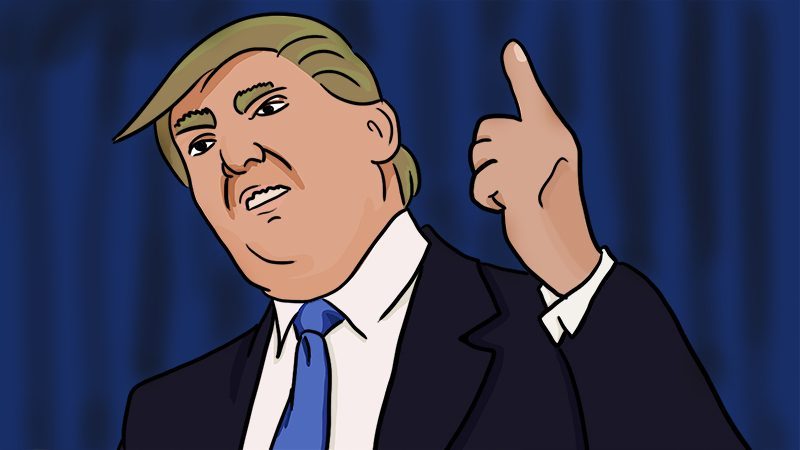Laurier speaks our after U.S. elections


After Donald Trump was announced as the 45th president of the United States of America, students, staff and faculty at Wilfrid Laurier University’s Waterloo campus began reacting to the news in various ways, especially concerning how Trump’s presidency could impact Canada’s relationship with the U.S.
Last Thursday, the Diversity and Equity Office and the Laurier Students’ Public Interest Research Group hosted a healing space for those who found the results of the election to be overwhelming and wanted a space to talk. All students were welcome to participate.
Barry Kay, associate professor in the department of political science and an expert in American politics, explained that president-elect Trump may be on his way to a problematic presidency.
“I can’t predict what he’s going to be doing once he’s president. He’ll be inaugurated on January 20,” said Kay. “He ran his campaign as if he didn’t understand what was in the constitution concerning cheques and balances and separation of powers.”
Kay noted that there are two main issues that could impact Canada after Trump becomes president: energy and free trade. Over the past few years, Trump has shared his opinion on global warming through various posts on his official Twitter account. One of his tweets from 2012 stated that the concept of global warming was by, and for, the Chinese, in order to make United States manufacturing non-competitive.
Kay noted that one area of most relevance to Canada on energy is Trump’s suggestion that he will most likely approve the Keystone XL Pipeline, a proposed pipeline that was intended to be a project for energy security in the United States and to strengthen their economy, it would begin in Hardisty, Alberta and extend to Steele City, Nebraska.
In 2015, Obama denied the presidential permit for the construction of the Pipeline.
“I’m not sure if it’s good for the environment bill, [but it would] probably be good for energy jobs in Alberta, so that’s one implication for Canada,” he said.
Trump has also suggested that he will renegotiate or terminate the North American Free Trade Agreement (NAFTA), a trilateral trade agreement between Canada, the U.S. and Mexico that was implemented in 1994. The first trade agreement between Canada and the US was the Canada-United States Free Trade Agreement (FTA) that came into force in 1989.
According to Kay, if the 1994 Agreement is renegotiated, the 1989 Agreement will still stand.
“Even if that was scrapped, we would probably still have a free trade agreement with the United States, however it’s clear that he wants to renegotiate the terms,” said Kay. “Americans are a bigger economic player than we are, [which] means there was some uncertainty for the impact on Canada, particularly in industries like the automobile industry but there [are] many others that are heavily integrated with the American industry.”
Kay also believes access to the United Stated might be more challenging particularly for non-citizens, as well as larger border delays.
I can’t predict what he’s going to be doing once he’s president.
-Barry Kay, associate professor in the department of political science
“I’ve heard it suggested that the bridge currently being planned, there’s an additional bridge being planned between Windsor and Detroit that might be in some jeopardy.”
While there is concern over what will become of the relationship between the United States and Canada when Trump officially becomes president, Kay believes the greatest concern are families of undocumented individuals.
“I don’t think there should be reason for people who are legal immigrants in Canada or the United States to feel they are about to be deported, there may be additional challenges for people crossing the border [and] without question there’s going to be less acceptance of refugees,” he said.
In 2015, Trump announced that he would deport 11 million undocumented immigrants from the United States. On Sunday during his 60 Minutes interview, Trump said he would deport up to 3 million immigrants in the United States with criminal records.
As an associate professor in political science, Kay said there have been many conversations surrounding the election results.
“In general, most of my students have certainly been critical of Trump and frankly, most of my students, because I asked this question, would have supported Bernie Sanders rather than Hillary Clinton.”


